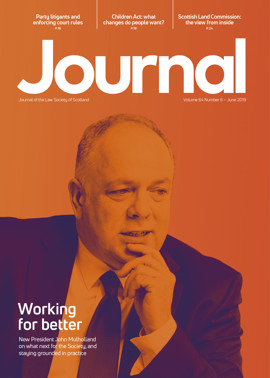Short pay?
National minimum wage (NMW) compliance is a key requirement of SPFL member clubs’ obligations, whilst sports outwith football in Scotland also focus on ensuring that they are correctly constituted and governed, ensuring legal risks are minimised whilst promoting a world class sporting system. A case from England recently demonstrated the importance of accuracy in arranging even how employees should pay for season tickets.
Excepted deductions?
The National Minimum Wage Regulations 2015 provide that deductions made by an employer for “the employer’s own use and benefit” are to be treated as reductions and therefore relevant when assessing whether NMW is being paid or not. The regulations contain a number of exceptions, where if applicable, deductions or payments are not to be treated as a reduction. These include:
- payments to purchase goods or services, unless the purchase is a contractual requirement;
- deductions or payments in respect of
- the worker’s conduct, where they are contractually liable;
- deductions or payments under an agreement for a loan or advance of wages.
MFC appealed to the ET, arguing that the deductions were not for its “own use and benefit” and so permitted, and also that the deduction fell within the listed exceptions, being a purchase of goods or services (the season ticket). MFC argued that while it did have use of the money, it derived no specific benefit from it, as there was no additional advantage or profit in receiving the money over many weeks as opposed to in one lump sum. Once the ability to pay in instalments was removed, all employees continued to purchase the season tickets, paying instead in one lump sum. The ET disagreed with this line of argument, explaining that it mattered not that the employer might have received the benefit regardless; the key consideration was whether the sums were in fact deducted from wages and what the appellant could do with those sums. As the employer could use the monies deducted for any purpose it desired, a benefit was clearly derived.
The ET considered whether the reductions could relate to conduct, or “any other event” in which the employee was contractually liable, but decided that it could not. Nor could it be considered a loan which the employee was obliged to repay. The nature of the deductions meant that it was more of a payment for receipt of benefits in kind, as opposed to a loan.
The case turned on the ET’s finding that the sums amounted to a reduction in the employees’ wages for the purpose of making a payment for goods received from the employer. It was considered crucial that the purchase of a season card was not a requirement of employment, as if this was so, the goods or services exception would not apply. Adopting a purposive approach, the sums were considered payments to purchase goods with no contractual requirement to do so. Accordingly, MFC was not in breach of the NMW legislation.
NMW legislation is complex, and particularly with the reputational risks created by the introduction of “naming and shaming” in 2013, employers are well advised to tread carefully when considering deductions, particularly for low earners. MFC altered its approach following receipt of the notices and no longer allows employees to pay for their season tickets by instalments.
NIC change
Separately, any sports club or organisation helping to arrange a sporting testimonial for an athlete or player should seek advice on the correct tax treatment of any payments made from the proceeds raised. The National Insurance Contributions (Termination Awards and Sporting Testimonials) Bill 2019 is making its way through Westminster and seeking to amend the national insurance treatment of income from sporting testimonials. The bill seeks to introduce a new 13.8% class 1A employer NICs charge to any part of a termination award or payment from a sporting testimonial that is already income tax liable. Any income derived from termination awards or sporting testimonials will remain free from employee NICs.
Perspectives
Features
Briefings
In practice
- Tradecraft – one solicitor's experience
- Dear employer...
- Team building – for the Foundation?
- Accredited paralegal practice area highlight: conveyancing
- Accredited Paralegal Committee profile
- What's new for paralegals?
- Ask Ash
- Managing the risk of workplace stress
- Appreciation: Iain Alexander Macmillan
- Revealed – by your AML certificates






